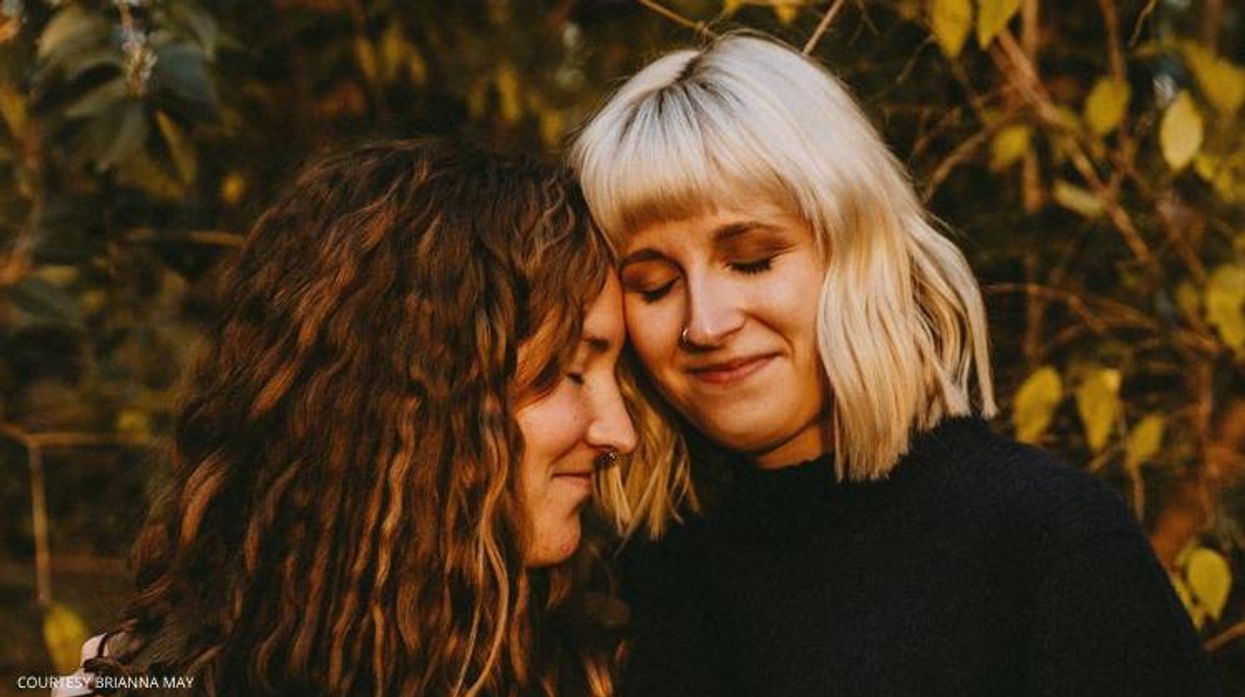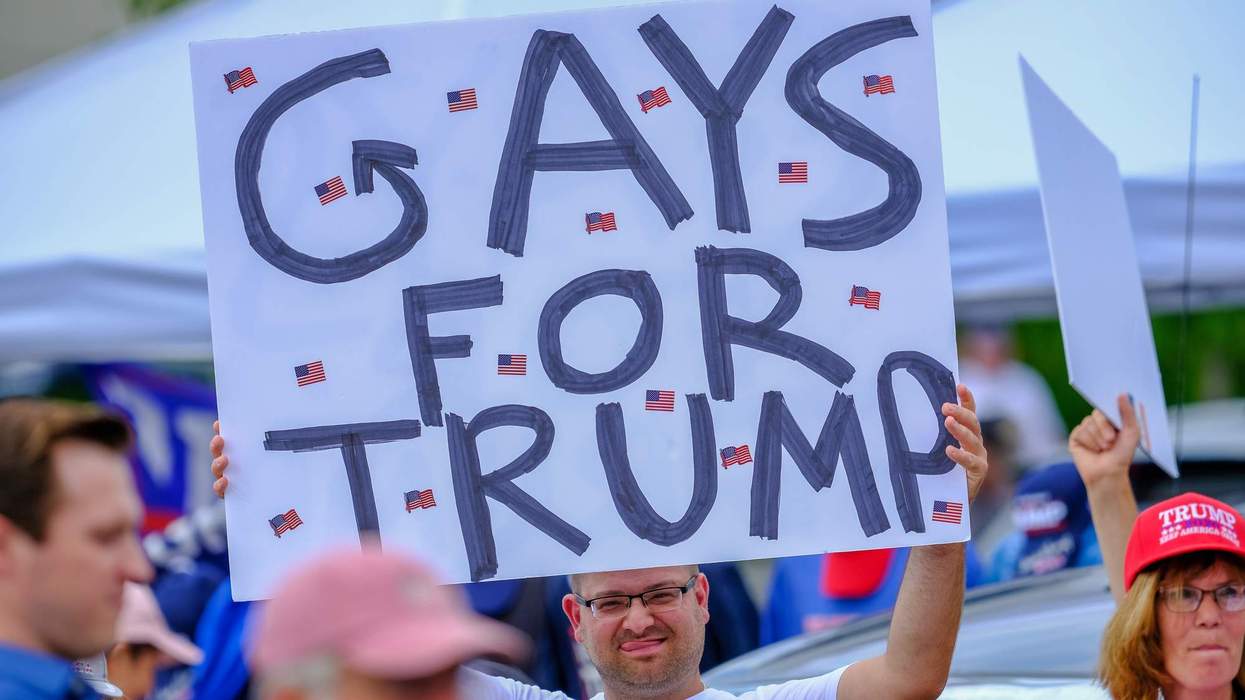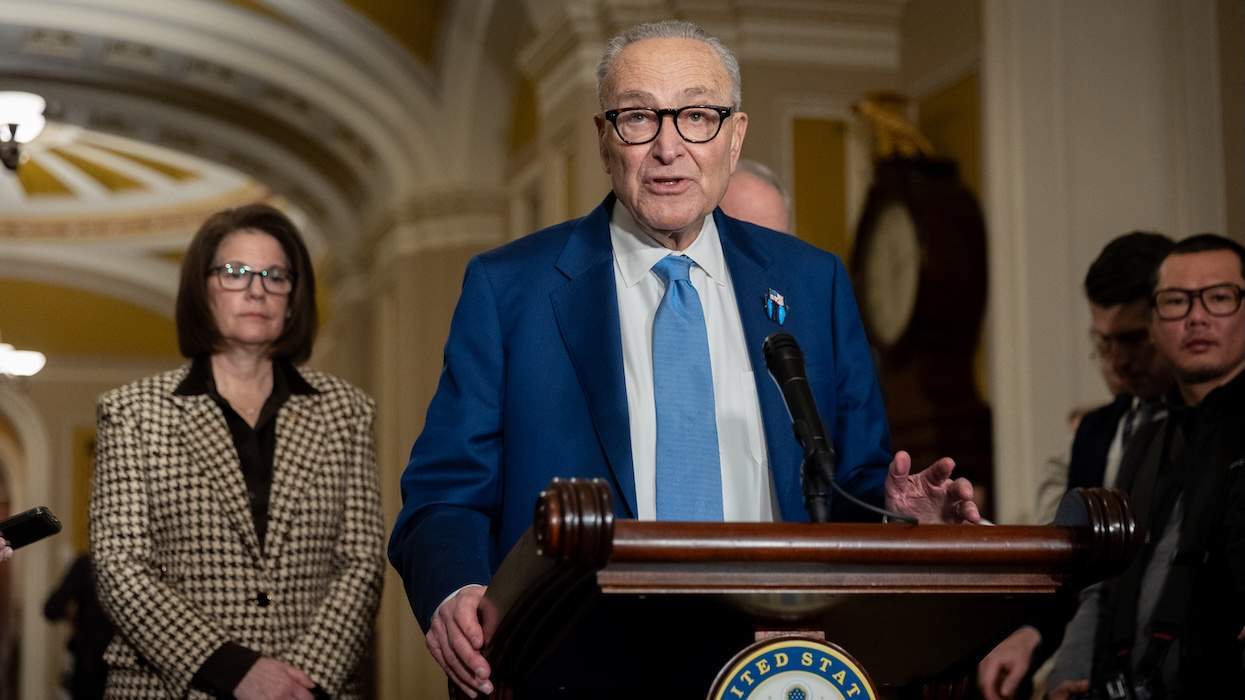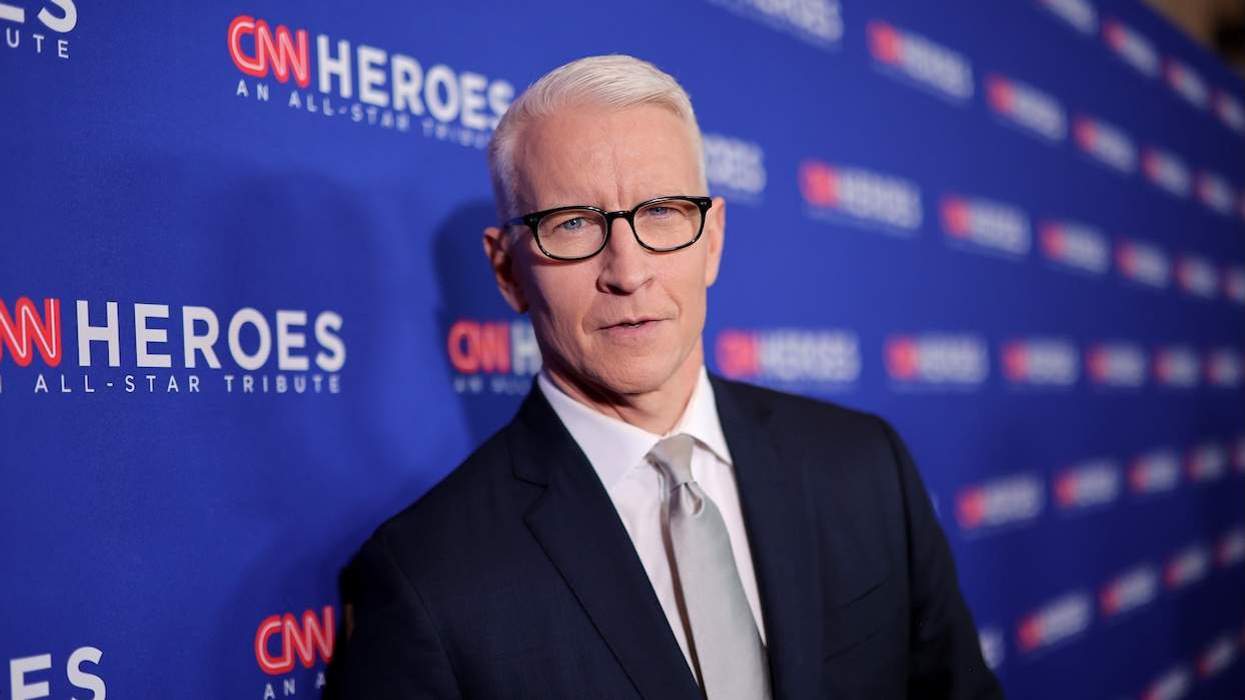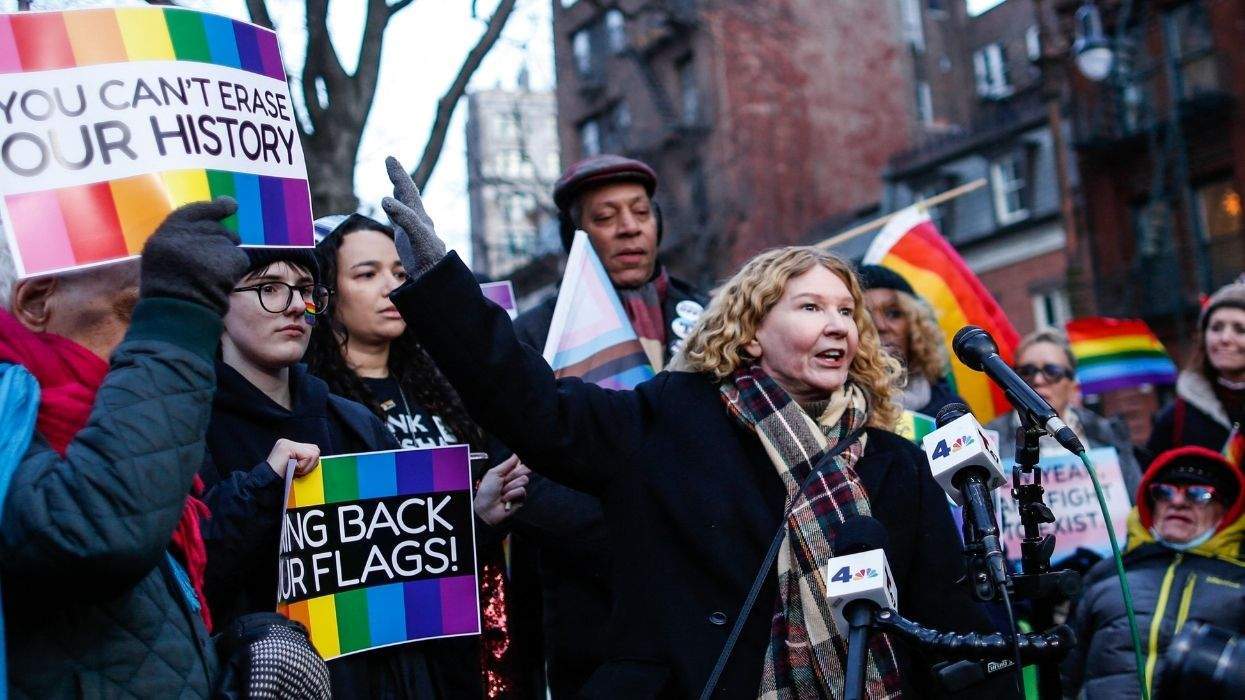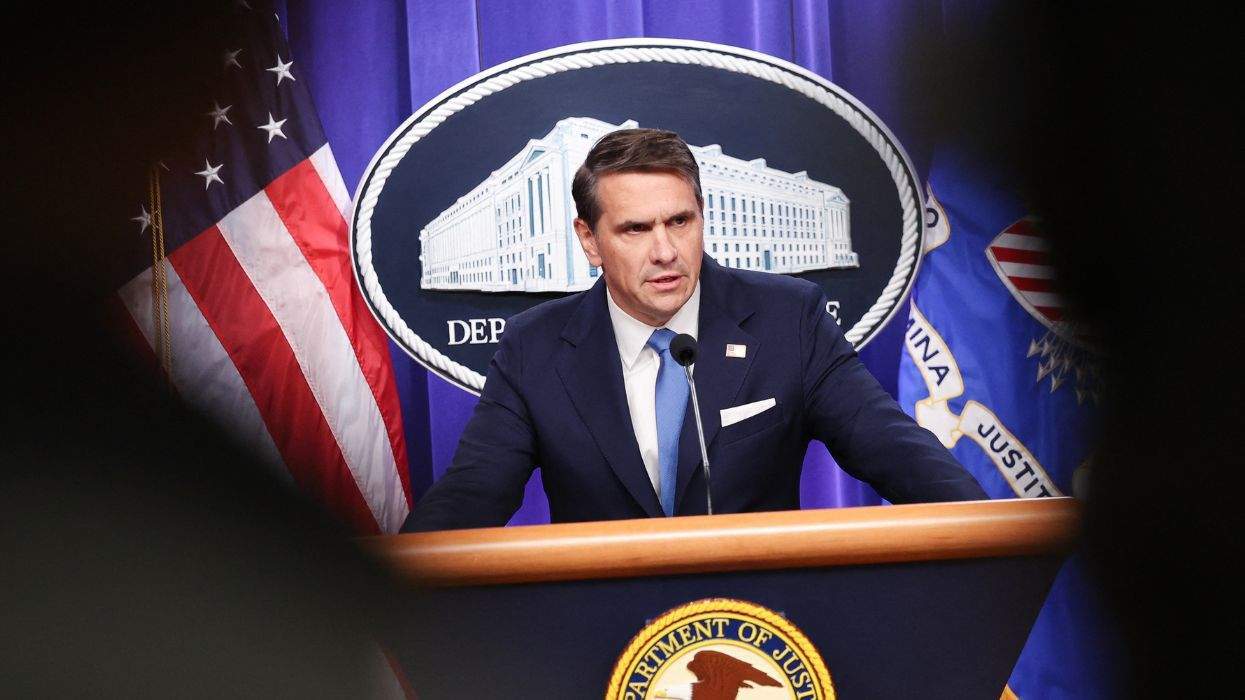A lesbian couple in North Carolina are making headlines after a venue refused to host their wedding because they are gay.
Brianna May and Kasey Mayfield were hoping to have their dream wedding at The Warehouse on Ivy, a popular event space in downtown Winston-Salem, but their hopes were shattered when they received an upsetting email from the venue.
"As we would love to have you at our venue, unfortunately we do not host same sex marriage ceremonies," the email read, according to a screenshot shared by May on Facebook. "We do appreciate you considering us."
"If you're wondering how wedding planning is going... Thanks so much to the warehouse on ivy for letting us know we're not welcome," she captioned the post.
The post has since been shared over 1,400 times with nearly 1,300 comments -- most of which accused the event of discrimination and offering support for the couple.
The venue's Yelp page was also swarmed with messages from LGBTQ+ people and allies, accusing them of discriminating against queer folks.
"I've been here for two events, one of which was a wedding," one Yelp reviewer wrote. "It's a beautiful location and I was happy to recommend it to a friend. Unfortunately, however, it appears that this venue discriminates against same-sex couples. What a shame to be known by your bigotry instead of your beauty."
"Any event space that refuses to book a couple's wedding event because of who they love doesn't deserve any stars, much less the one I'm forced to give. Do better. Disgusting," another wrote.
One commenter added, "Discriminatory and hateful. Do not spend your money with them. They clearly only take money from people who make them feel comfortable. Homophobia has no place here."
The comments piled on and apparently became so rough that the venue temporarily disabled postings as it checked if reviews reflected "actual consumer experiences rather than the recent events."
Mayfield later took to Facebook herself to express her gratitude for everyone's support. "Brianna and I would like to thank everyone who had kind and supportive words for us," she wrote. "To everyone with recommendations, we can't wait to look through them and continue planning our wedding and share them with other queer couples facing the same obstacles."
Out reached out to May about the response she and Mayfield have had online, during which she confirmed that they've had no correspondence with the venue since the email.
"We are doing okay," May tells Out. "The overwhelming love and support from the community has been wonderful. When we first got the email we were shocked by the response and hurt. We have not contacted or been contacted by the venue since that email."
She adds, "North Carolina does not currently have any protections for discrimination against LGBTQ+ people and we urge residents to contact legislators to pass protections."
North Carolina is one of 27 states with zero statewide anti-discrimination laws that would protect LGBTQ+ people from being denied services.
House Bill 142, which prohibited cities and counties from enacting non-discrimination rules for local businesses in North Carolina, expired on December 1. It's unclear where, when, and how new changes might begin again -- if at all -- and lawmakers have been relatively silent.
Kendra Johnson, executive director of the group Equality NC, said that activists have started to push legislators to enact new protections, specifically around healthcare and housing, explaining that LGBTQ+ people are most vulnerable.
"You have people who have transitioned but have to hide that fact for fear of becoming homeless in the middle of a pandemic," she said to The News & Observer.
Meanwhile, Tami Fitzgerald, the leader of the N.C. Family Values Coalition, a conservative Christian group, wrote an op-ed in the North State Journal where she urged cities not to pass any pro-LGBT ordinances even after the ban expires.
"These ordinances are a Trojan horse to weaponize hate and hostility toward small business owners and private citizens with sincerely held religious beliefs," she wrote, later telling News & Observer in an email that she wasn't aware of any cities or counties planning to immediately act, but that they should expect to be sued if they do.
Still, activists are confident that legislators won't want to repeat history.
"I can't speak for legislators, but I don't think anybody has the appetite to wade back into an HB2-style law," explained Allison Scott, the policy director for the Asheville-based Campaign for Southern Equality.
Of course, HB2, otherwise known as 2016's "bathroom bill," banned trans people from using the bathroom of the gender they identify with, making it the only state in the country to pass such a law.
A huge backlash followed, which included major companies pulling jobs and other investments out of the state in protest, making a big dent in the economy.
HB2 was later repealed and replaced with HB 142 when Democrat Roy Cooper became governor.
HB 142 got rid of the bathroom restrictions and gave local governments that had previously passed pro-LGBTQ+ legislations the ability to put these policies back into place. However, it kept them from enacting any new local rules until December 1 of this year.



